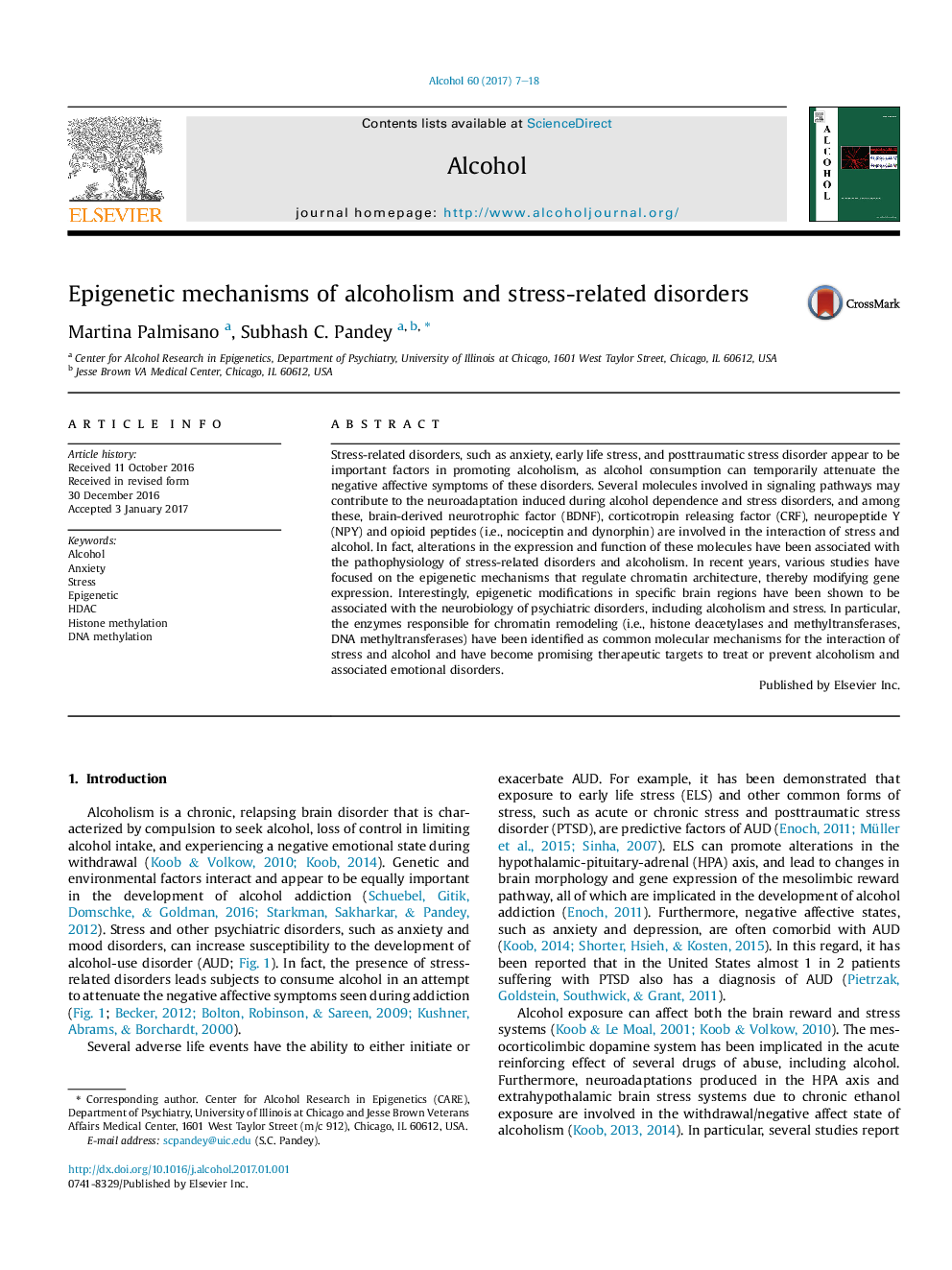| کد مقاله | کد نشریه | سال انتشار | مقاله انگلیسی | نسخه تمام متن |
|---|---|---|---|---|
| 5119584 | 1485969 | 2017 | 12 صفحه PDF | دانلود رایگان |
- Alcohol consumption can temporarily reduce the symptoms of stress-related disorders.
- Several neurotransmitters are involved in mediating the stress process and alcoholism.
- Similar epigenetic alterations are found in alcohol abuse and mood disorders.
- Inhibiting HDACs and DNMTs can represent a promising therapeutic approach.
Stress-related disorders, such as anxiety, early life stress, and posttraumatic stress disorder appear to be important factors in promoting alcoholism, as alcohol consumption can temporarily attenuate the negative affective symptoms of these disorders. Several molecules involved in signaling pathways may contribute to the neuroadaptation induced during alcohol dependence and stress disorders, and among these, brain-derived neurotrophic factor (BDNF), corticotropin releasing factor (CRF), neuropeptide Y (NPY) and opioid peptides (i.e., nociceptin and dynorphin) are involved in the interaction of stress and alcohol. In fact, alterations in the expression and function of these molecules have been associated with the pathophysiology of stress-related disorders and alcoholism. In recent years, various studies have focused on the epigenetic mechanisms that regulate chromatin architecture, thereby modifying gene expression. Interestingly, epigenetic modifications in specific brain regions have been shown to be associated with the neurobiology of psychiatric disorders, including alcoholism and stress. In particular, the enzymes responsible for chromatin remodeling (i.e., histone deacetylases and methyltransferases, DNA methyltransferases) have been identified as common molecular mechanisms for the interaction of stress and alcohol and have become promising therapeutic targets to treat or prevent alcoholism and associated emotional disorders.
Journal: Alcohol - Volume 60, May 2017, Pages 7-18
